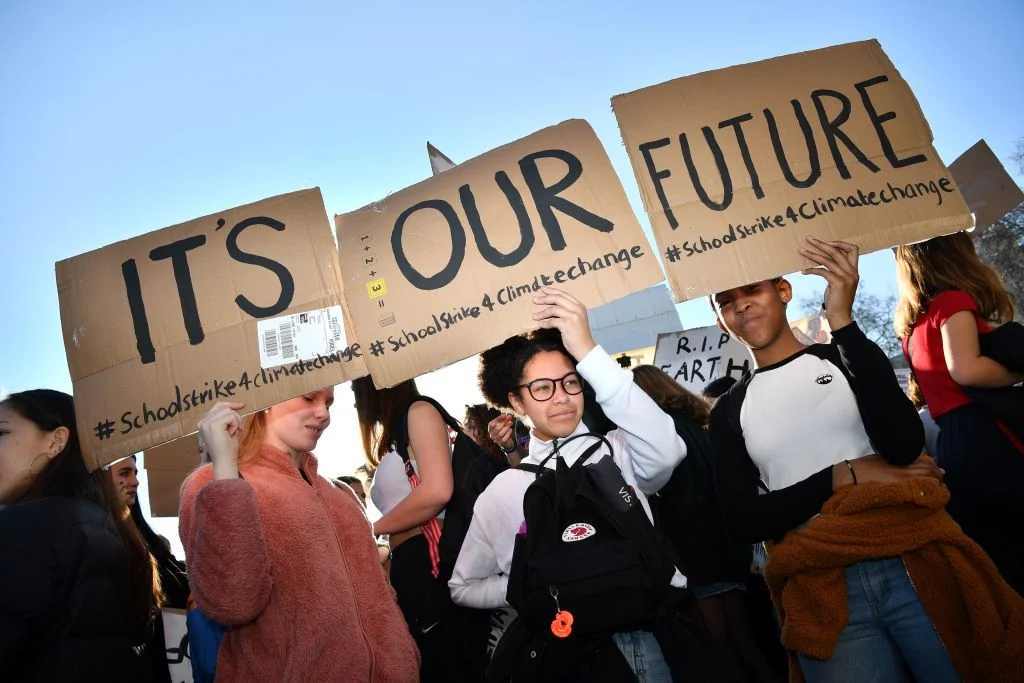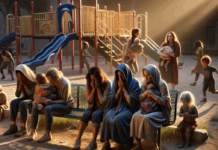The year 1968 is considered by many to be the worst in modern American history: assassinations of political leaders, race riots in our urban areas, student protests and harsh crackdowns on college campuses, an intractable and increasingly unaffordable war thousands of miles away.
But what is happening right now, particularly at schools and universities on both sides of the Atlantic, is equally troubling – and may pose an even greater threat to our wellbeing in the years ahead.
According to a 45,000-participant College Plus survey on respect, tolerance and open-mindedness on American campuses – the largest ever conducted – an appalling 62 per cent of students said it’s “at least sometimes acceptable” to shout down a speaker, and one in five students said that using violence to stop a campus speech is “sometimes acceptable.”
Really?
One-fifth of all US students now think it’s okay to use violence to stop someone they disagree with from speaking?
Academia is the one place in the world where intellectual freedom is supposed to be welcomed and celebrated – but it isn’t.
Generation Z may claim they are the most tolerant, enlightened generation ever, but that’s not the reality. So many students are so angry at so many things.
It pains me to write these words, but I truly believe American democracy is in peril.
The shining city on the hill, which has illuminated so many dreams and aspirations across the Western world has begun to flicker. And what happens in America, politically and socially, inevitably finds its way across the Atlantic to Britain.
If you want to learn what the next 50 years will bring, look no further than what students and their faculty are saying and learning today. If you thought today’s politics was broken, you haven’t seen anything yet. This is why I fear for our democracy.
I’ve been a visiting professor or lecturer at more than a dozen colleges across the globe over the past two years and have taught off-and-on for three decades. My travels have taken me to universities in Saudi Arabia, the UAE and Israel, from Italy to Ireland, from China to Africa, and to numerous institutions of higher learning in my own country and the UK.
The experience has opened my eyes to the progress being made globally to teach critical thinking and problem solving, tolerance and understanding in places outside the West … and just how dangerously intolerant and woke our schools have become much closer to home.
The loudest voices are those hurling ad hominems – playing the man rather than the ball, as they say in British football – trolling or vilifying people with whom they disagree, making it seem that there is no common purpose, no common ground, no common anything except an endless quest to destroy professional careers and personal lives. The only goal is to force one’s opponents to do involuntary penance for their sins.
This is the grim reality of cancel culture, and it will only get worse as the bitter and angry younger generations rise to power and prominence.
If you believe your opponents are stupid or evil, you don’t believe in democracy
The politics of hate and grievance splits us apart. There are two separate Americas on college campuses with two distinct experiences – and it’s happening right now in the UK as well.
This conclusion is not just based on the news I consume every day. It’s not just because of Brexit or the US Capitol attack of January 6th 2021. It’s based on what I’ve learned listening to voters from across the political, geographical, and financial spectrum in polls and focus groups as they tear each other apart and shred each other’s perspectives.
The prognosis for 2024 and beyond is even worse.
Too many candidates and political operatives have concluded – often for good short-term practical reasons – that the only way to unite the base voters in each party is to feed them a steady diet of vitriol, reminding them relentlessly of what they hate about the other side. They can’t agree on their own priorities or solutions, and they think their party colleagues are mediocre, but they know the other side is worse.
The end – political power – justifies these unpleasant means, for far too many. It’s no surprise that more than a third of the American electorate now votes to oppose the candidates they dislike, rather than to support candidates they want to win. These aggressive, unapologetic efforts at dehumanization, delegitimization and destruction of the “other” group – this phenomenon is what’s breaking down our democracy.
The whole idea of democracy, after all, is that one person is as good as another: it’s why nearly everyone gets to vote. But the theme of modern politics is that the people on the other side are at best morons and at worst evil. If that’s what you truly believe, you are not in fact a believer in democracy, because you clearly do not accept that your opponents are worthy of being allowed to vote.
This has happened to far too many people on both sides of the Atlantic. And yet a clear majority of voters in the US and the UK don’t want their elected officials to be partisan. They want to be governed by people who put the needs of the nation ahead of traditional politics. It’s what this newspaper, in fact, demanded of Parliament in 2016 after the historic Brexit vote.
As for the UK, many of my students there no longer see the value of voting: that’s a strong sign that they don’t believe in democracy either. Those that do vote dismiss the Conservatives without thought as representing and embodying privilege rather than compassion. It should come as no surprise that the average age of a Conservative voter is higher than average life expectancy once was.
But what is the compassion that the young people respect? Too many in the US and UK measure compassion by words and visibility rather than action and results. To the woke college student, the more outrage you express, the better a person you are. Righteous indignation is the currency of the time. People revel in making a statement, rather than a difference.
But there is hope and optimism and respect for the other fellow’s point of view in the world – just not in the US or UK.
Last year I hosted a Masterclass at the African Leadership University in Kigali, Rwanda, home to over 1,400 students from more than 40 African countries. Nearly every student had a story of genuine hardship: poverty, hunger, chronic illness and worse. Every day for them is a struggle to fund their schooling. Every night is a challenge to find food and a place to sleep.
You might think these students would resent the wealth of the US, or the UK, the other European nations who colonized them, or white people in general. Yet there is no resentment. No jealousy. Every person has merit. Every viewpoint has legitimacy.
At that university there is only respect for others and a passionate, genuine desire among the students to achieve their dreams.
Will you find that tolerance and mutual respect for nonconforming and unpopular opinions at Oxford or Cambridge? Is that a fair description of daily life inside and outside classrooms at Harvard, Yale or Princeton? Is it acceptable to be a Trump supporter at most US liberal arts colleges, even though he did receive almost half the popular US vote?
It has been fascinating to me to see the dramatic differences between students of the same age, differences most glaring in the degree of entitlement and gratitude – or the lack of it. In countries where much is given, they think so much more is owed.
The future is ours to write
If the past is prologue, as Shakespeare once wrote, the future is ours to write depending on the choices we make.
If we open up selection and election processes so that those in the centre of the political spectrum can participate in the nomination of candidates from the political parties, we will have leaders that better reflect the constituencies they represent rather than ideological extremism.
If we do a better job accounting for all the money that now floods the electoral process, we can shift the focus of politics to problem-solving rather than fundraising.
Most importantly, if we insist that diversity of ideas is just as important as ethnic, racial or gender diversity, our universities will once again be the home for vibrant discussion and real learning so necessary for a better future.
America hasn’t lived up to its promise over the past decade because of the choices we make. Let’s hope we can choose more wisely now. And let us hope that the UK arises from its current funk to assert its proper prominent role in achieving a better future.
If my African students can still hope after all that they have sacrificed and suffered, shouldn’t we of the West be able to as well?
DISCLAIMER: The content of Pro Liberation is firmly opinionated and is not meant to be interpreted as official news. We glean facts and quotes from mainstream news websites and abridge its meaning for readers to relate. We do not indulge in misinformation, conspiracy theories, or false doctrine but choose to express our right to free speech as citizens of this country and free born under God the Creator. We represent Nu Life Alliance Inc. a non-profit organization in the battle for social and economic justice. Donate to our cause at the following link. DONATE














